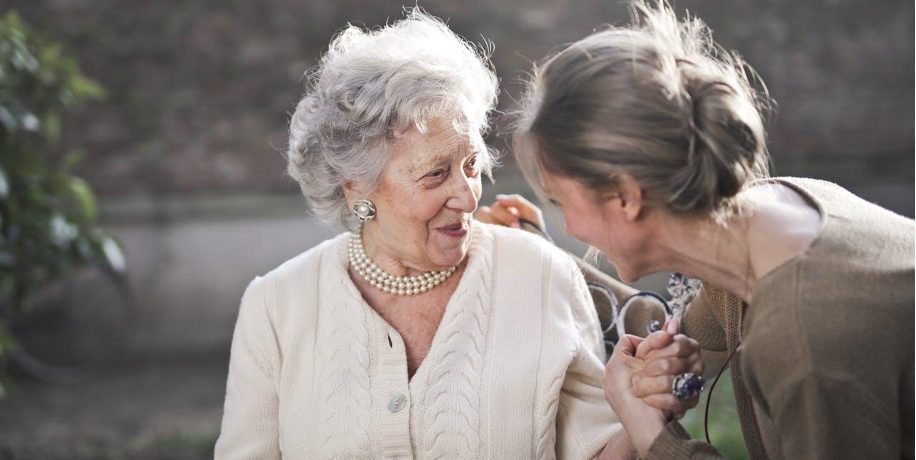Caring for Aging Parents

One of the interesting aspects of life is that your relationship with your parents will develop over time. A challenging — yet often quite enriching — shift arises when your aging parents require more care. This may be in the form of getting a little extra support or they might need significant assistance from you.
Knowing how to approach this new role can be difficult. There can be hurdles to navigate around shifts in their independence and how this impacts their lifestyle. At the same time, you naturally want to ensure that their experience remains happy, healthy, and fulfilling. We’re going to look at a few areas you can focus on that can make caring for your parents positive for everyone involved.
Collaborate on their Needs
When caring for aging parents, it can be really easy to slip into personally deciding what to do and moving forward with those plans. This can feel like the most practical route and may even seem less of a burden on your parents. Yet, making them subjects of their care rather than active participants can be a less positive experience for them. Wherever possible, collaborating with them on identifying and addressing their needs is a more empowering approach and can help you all maintain a good relationship.
This begins with actually being clear about what their needs are. Needs will likely change over time, so it’s important to check in with your parents relatively regularly on this subject. Don’t make it too formal, but set aside about an hour of time to talk. Discuss what tasks they’re struggling with and what changes they’ve noticed since your last discussion about their needs. Be honest with them about what you’ve noticed, too.
From here you can discuss some potential ways to address their needs that are both empowering for them and practical. If you don’t have immediate ideas, you can do some research and return later with suggestions. If their changing needs are medical in nature, make a note for them to raise questions related to this next time they visit their doctor. They may be comfortable with you attending with them. Wherever possible, though, encourage them to be advocates for their care with you there to provide additional guidance, information, and support.
Encourage Mental and Physical Stimulation
Keeping active can be challenging as your parents get older, but this is vital for their overall well-being. It isn’t just about ensuring they get enough physical exercise to maintain muscle function and cardiovascular wellness. Encouraging mental stimulation, too, is key to staying healthy, fending off psychological challenges, and boosting cognition.
One area for particular attention is promoting activities that prevent memory loss, which can be common in older age. Playing card games can engage the memory and exercise recall skills, while reading fiction tends to stimulate creativity and the imagination. Something as simple as having conversations with your parents that require them to observe the specifics of their surroundings and remember routines can be useful cognitive tools.
From a physical perspective, there are various types of activities that are good for seniors’ continued health while not putting unnecessary pressure on their bodies. Yoga can help improve balance, with routines available for people of all physical abilities. They should also aim to do moderate-intensity aerobic activities — such as swimming or dancing — for around 150 minutes per week.
Above all else, though, help your parents find physically and mentally stimulating activities they’re actually likely to enjoy. Connecting these to their hobbies and interests is a good start. For instance, if they enjoy nature, accompanying them on hikes along local trails and perhaps spotting wildlife can combine physical, psychological, and emotional stimulation. Finding activities they can do with their friends or to meet new people is also good for their social well-being.
Ensure Gentle Transitions
Aging often brings with it various life events that require significant transition. Some of these can be quite challenging, particularly those that see your aging parents feeling less independent or in new surroundings. There is no avoiding transition entirely. Yet, you can help ensure their happiness and health by finding ways to make these changes gentler and more gradual, rather than disruptive sudden events.
One of the common transitions you may experience is helping your elderly parent move from their current home into either a simpler property or a senior living space. Starting to make plans well in advance of the moving date minimizes logistical stresses while also giving your parents time to get used to the idea of moving.
Keep communicating with them throughout the process, too, talking about their feelings alongside reassuring them about your support. You can also help them on the technical side. If they’re moving to a different house, home automation innovations such as voice-activated assistants and smart thermostats can help them minimize energy bills and get help through voice commands if they do happen to fall.
If you can, ensuring the new place has familiar items, keepsakes, and family photos already on display when your parents arrive can make the situation a little more comfortable and comforting.
Conclusion
Ensuring your parents are happy and healthy in their golden years can be challenging, but there are strategies you can adopt. Amidst measures to keep them active and ease their transitions, the key is to empower them as much as possible even as their independent ability diminishes. Remember, too, that your wellness is equally important. Reach out for help whenever you need it and seek support groups that can guide you through managing the experience.
Guest post by Charlie Fletcher
Tags: aging parents, behavioral health, caring for aging parents, caring for parents, crossroads health, health services, healthy living, lake county, mental health, mental health awareness, Mentor Ohio, parent care, self care

